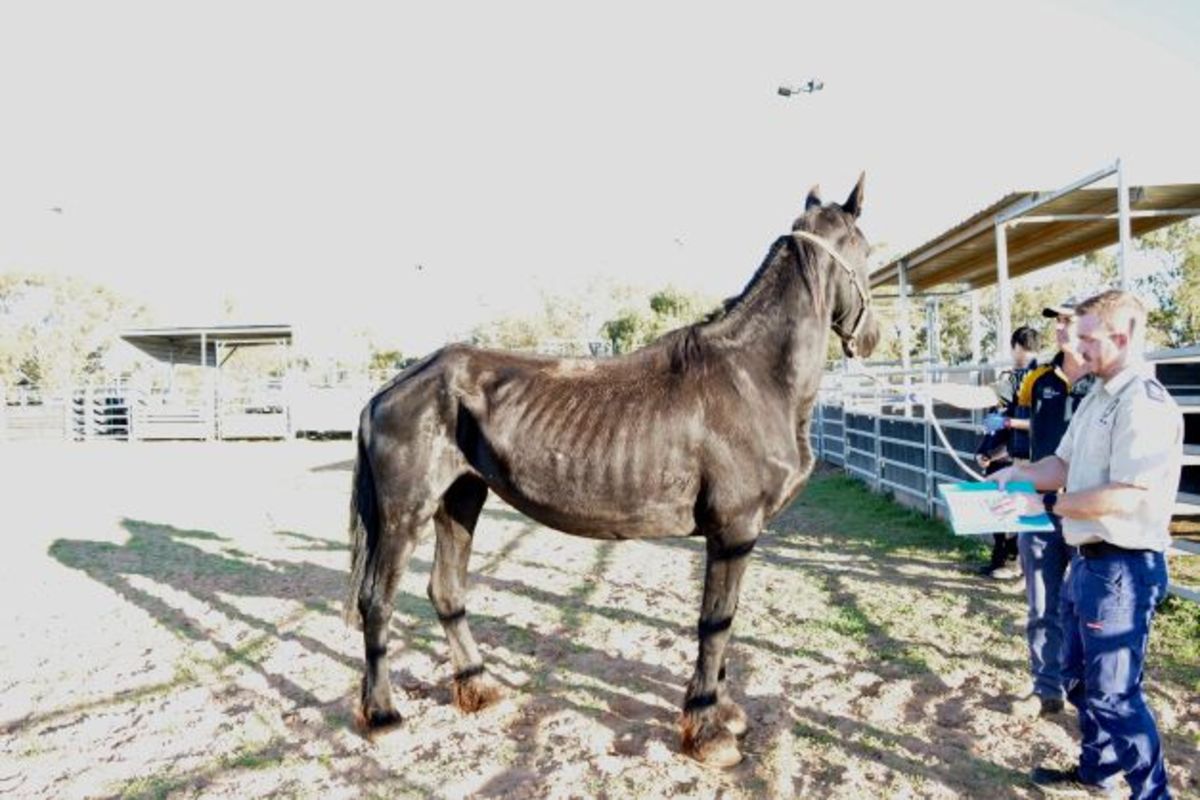RSPCA SA Combat Cruelty 2021 campaign
Fleurieu App
30 August 2021, 5:40 AM
 Hunny - RSPCA SA Combating Cruelty
Hunny - RSPCA SA Combating CrueltyCruelty reports going up, but number of RSPCA inspectors to investigate them remains low
RSPCA South Australia had a 6.5% increase in the number of cruelty reports last financial year, with 4,398 reports received – the highest number since FY2016.
Insufficient food, poor living conditions and failure to seek veterinary treatment were again the dominant issues. In addition, there were 107 reports of animals being poisoned or baited, more than double the number of such reports received in the previous two financial years.
A total of 955 animals were seized by, or surrendered to, RSPCA inspectors, almost 100 more than in FY2020.
Of these, nearly 70% were adopted into new homes. These animals getting a second chance at life were among the record number of 5360 animals adopted from RSPCA SA last financial year. (RSPCA SA’s live release rate is close to 90%, by far the highest in the organisation’s history, with nine out of every ten animals coming into care finding new homes.)
The Covid-pandemic caused significant delays to the processing of cruelty cases through the courts, with just 15 cases involving 16 defendants finalised. Warrants have been issued for the arrest of nearly half of all the defendants in the 47 currently open cruelty cases. A warrant is also in place for the arrest of former Baroota resident Dora Ryan, who is believed to have fled to New Zealand in order to avoid sentencing on cruelty convictions relating to her dog and horse breeding operations. RSPCA SA continues to investigate Ms Ryan’s possible extradition to Australia.
Most of the animals that came into RSPCA SA’s care via the inspectorate were dogs (47%) and cats (29%), but other species rescued included horses, sheep, cattle, rabbits, native mammals and native reptiles.
Covering such a large area 24/7 with just seven inspectors continues to be a challenge. It equates to one inspector per 140,497km2. By comparison, Victoria has 29 inspectors (one inspector per 7,843km2), and NSW has 35 inspectors (one inspector per 22,890km2).
The State Government provided nearly $1.2m towards the cost of running the inspectorate. RSPCA SA is reliant on donations to cover the shortfall, which is more than half of the total cost.
While acknowledging the need for more inspectors, particularly in regional areas, RSPCA SA Chief Inspector Andrea Lewis says she is proud of what the inspectorate has achieved.
“We have not lost a single case in a decade, and we’ve prosecuted 1,160 cases since the Animal Welfare Act was introduced in 1985,” Inspector Lewis says.
“This result speaks volumes for the quality of our investigations and legal work, both of which are becoming increasingly more complex as our society becomes more litigious.
“We’re punching well above our weight, but with such a huge state to cover, we’re very reliant on support from SAPOL, in particular for attendance at urgent incidents in regional SA.
“Our inspectors do, of-course, attend to jobs in the regions, but obviously they can only be in one place at one time.
“We would be very keen to have inspectors based in regional centres such as Port Lincoln and Mount Gambier, but we currently do not have the resources to fund those extra positions.”
RSPCA SA CEO Paul Stevenson says the organisation continues to seek full cost recovery for services provided to the State Government, in the same way as the SA Police Force is fully funded to fulfil its role of enforcing state legislation.
“The financial strain of funding the shortfall with the inspectorate is considerable and growing,” Mr Stevenson says.
“There is no doubt South Australians take animal welfare seriously, and we do not believe the inspectorate should be this reliant on community donations to do its vital role.”
RSPCA SA has released the latest inspectorate and prosecution statistics as part of its annual Combat Cruelty campaign, now in its fourth year. The campaign equips people with information so they can recognise cruelty, know what to do when they see it and help prevent it. South Australians are encouraged to learn more about the work of RSPCA’s inspectorate and to take the Combat Cruelty pledge at -
www.combatcruelty.com